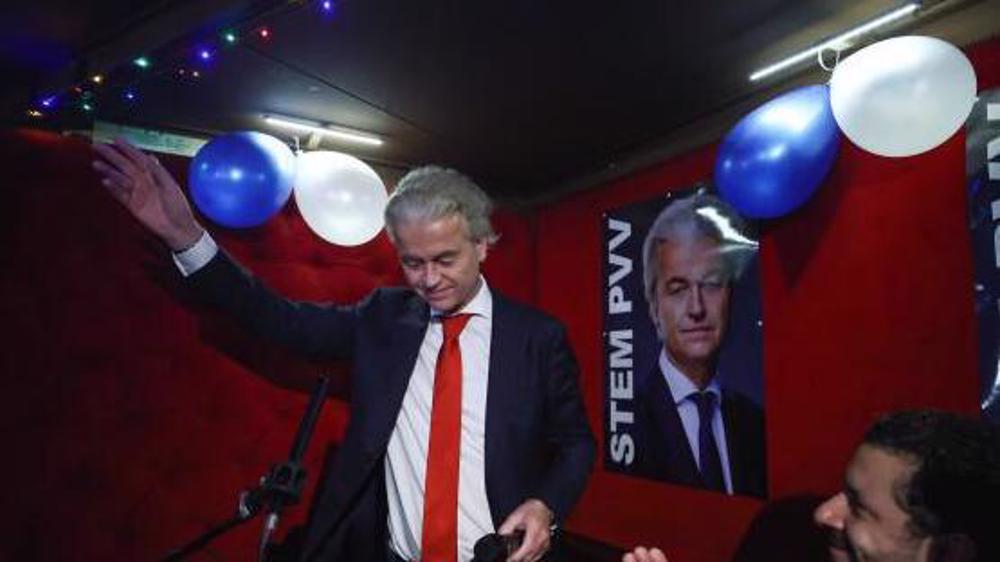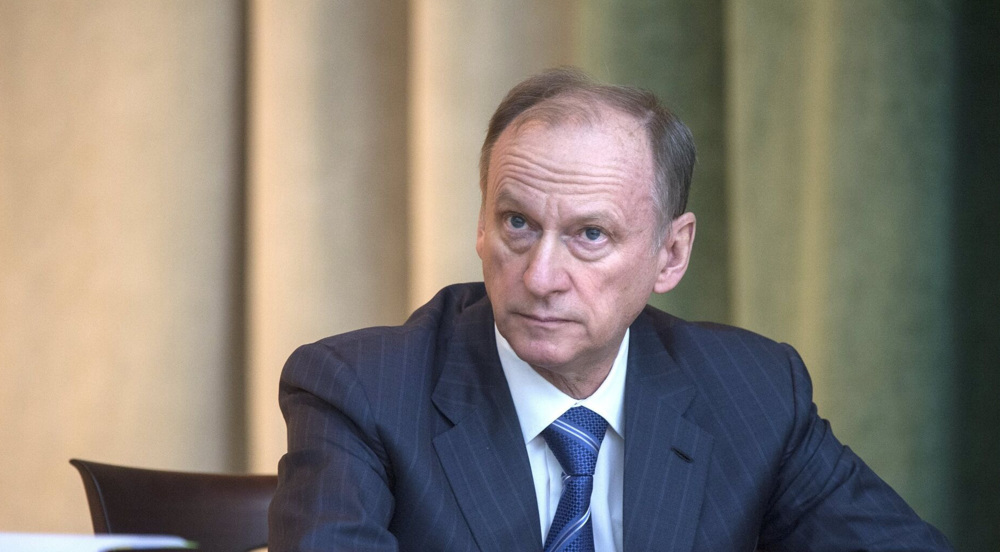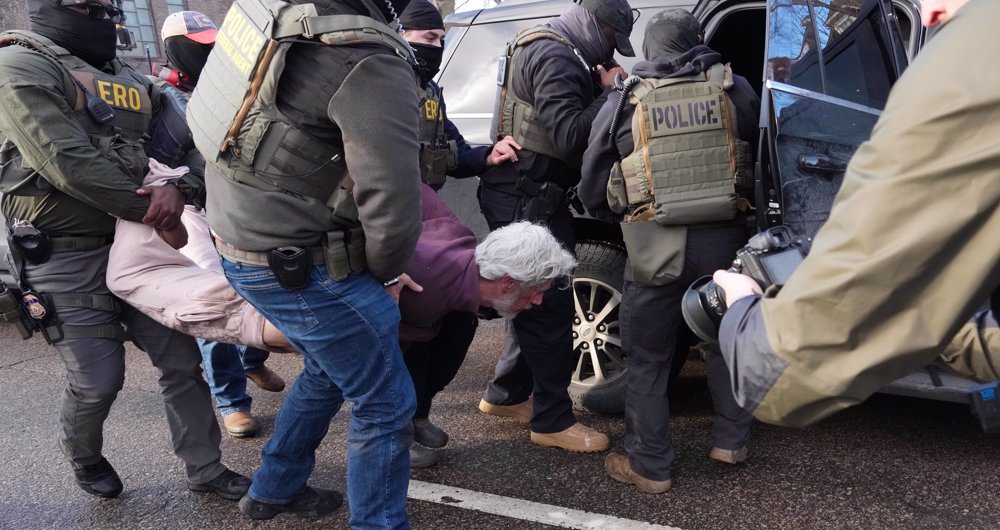In Netherlands, anti-Islam Wilders wins general elections
The far-right anti-Islamic Party for Freedom (PVV) has won general elections in the Netherlands, finishing well ahead of the nearest rival, a left-wing alliance of Greens and social democrats.
The election result that was announced on Thursday has been regarded as one of the biggest political upsets in Dutch politics since World War II.
With nearly all votes counted, Geert Wilders’ PVV is set to win 37 seats in the 150-seat lower house of parliament, more than double the 17 he won at the last election.
Wilders has been advocating the “de-Islamization” of the Netherlands. In the past he had said he wants no mosques or Islamic schools, saying the Netherlands is not an Islamic country.
The news of the victory of the PVV will be a major cause for concern amongst the country’s Muslim population.
The far-right politician ran on an anti-migration ticket promising to close the country’s borders.
In his victory speech, Wilders said he wants to end what he called the “asylum tsunami,” referring to the migration issue that came to dominate his campaign. “The Dutch will be No. 1 again,” Wilders said. “The people must get their nation back.”
In 2016, Wilders, 60, was convicted of discrimination after he called Moroccans “scum.”
Islamic organizations in the Netherlands have expressed shock and dismay at the election results.
“The distress and fear are very great,” said Habib el-Kaddouri from a Dutch-Moroccan association speaking to local Dutch media. “Wilders is known for his ideas about Muslims and Moroccans. We are afraid that he will portray us as second-class citizens.”
Muhsin Koktas, who heads an organization that lobbies the government on behalf of Muslims, said in an interview with local Dutch media, “Everyone is talking about social security, but I don't know if we still have it.”
“I don't know whether Muslims are still safe in the Netherlands. I worry about this country,” Koktas said. “in any case, a very difficult period begins for Muslims.”
The PVV manifesto says, “We want less Islam in the Netherlands and we will achieve that through: less non-Western immigration and the introduction of a general halt to asylum.”
“Asylum-seekers feast on delightful free cruise-ship buffets while Dutch families have to cut back on groceries.”
Wilders has also promised in the past to stop the construction of new mosques, implement a ban on wearing Islamic scarves in government buildings, and has compared Islam to a totalitarian ideology that should be banned.
Wilders’ election program included calls for a referendum on the Netherlands leaving the European Union, a total halt to accepting asylum-seekers and migrant pushbacks at Dutch borders.
The result that will send shock waves through Europe, where far-right ideology is on the rise, puts Wilders in line to lead talks to form the next governing coalition and possibly become the first far-right prime minister of the Netherlands.
Far-right politicians across Europe including Hungary’s Prime Minister Viktor Orban, France’s Marine Le Pen, and Italy’s Matteo Salvini rushed to congratulate the PVV leader. However, Wilders, who has in the past been labeled as a Dutch version of former US President Donald Trump, needs to form a coalition government for assuming power. That appears tough as mainstream parties are reluctant to join forces with him and his party, but his huge victory gives him the upper hand in any negotiations.
UK's police arrest ex-prince Andrew over sex scandal linked to Epstein
Iran elected vice-chair of UN Special Committee on Charter
Iran envoy says decision made to exchange ambassadors with Egypt
Russia continues to develop relations with Iran: Kremlin
VIDEO | Friends of Palestine meet at UN in Vienna
Trump’s war-mongering on Iran sparks sharp rebuke from US lawmakers
Top American columnist warns of Netanyahu exploiting Trump for Iran war
VIDEO | Press TV's news headlines










 This makes it easy to access the Press TV website
This makes it easy to access the Press TV website